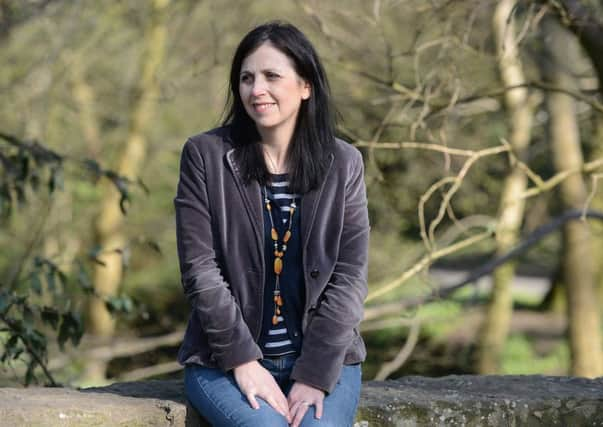Scots clinic offers new hope on multiple sclerosis


Scientists conducting the Edinburgh University trial, run in conjunction with University College London, believe the £2.7 million project will offer new hope for people suffering from the debilitating disease, as all three existing drugs have shown the potential to protect nerves from damage, which could slow or halt the onset of disability.
Scotland has one of the highest incidences of MS in the world, with around 10,000 people suffering from the neurological condition which occurs when the protective coating surrounding nerve cells in the brain and spinal cord is damaged or destroyed.
Advertisement
Hide AdAdvertisement
Hide AdProfessor Siddharthan Chandran, director of the Anne Rowling Regenerative Neurology Clinic at the University of Edinburgh – established with a donation from Harry Potter author JK Rowling – said: “This is a very Scottish problem. We have a disproportionate number of people with multiple sclerosis in this country.
“While this is unfortunate, it also shows Scotland needs not only to participate but to lead on this research. With the number of patients we have, with our unitary NHS and excellent universities we should be leading on this.”
Participants with secondary progressive MS are needed for the MS-SMART trial at the clinic, which is one of 15 sites involved in the two-year study across the UK.
Those involved will receive a placebo or one of three drugs – amiloride, which is used to treat heart disease, fluoxetine, which is given for depression, and riluzole, a therapy for motor neurone disease.
They will then be monitored for two years using brain scans and other measures to see if the disease has progressed.
Prof Chandran said “repurposing” the three existing medicines was an innovative approach to finding treatment, as they have already been proved as safe and effective in other cases.
He described MS as a “pathfinder” disease, as greater progress was being made towards finding treatment for it than for other neurological diseases such as Parkinson’s, motor neurone disease (MND) and Alzheimer’s.
Prof Chandran said: “We want to get to a point with MS where we can make faster progress by running a constant carousel of trials – like they do with cancer. Clinical trials are how you make a difference. I definitely see this trial as the beginning of a journey.”
Advertisement
Hide AdAdvertisement
Hide AdMany people with MS experience a flare-up of symptoms over a few days or weeks – including impaired vision, upset balance and problems with memory. However, this study targets those who develop secondary progressive MS, where their condition deteriorates over time.
Stephanie Hanna, 47, of Comiston, Edinburgh, was diagnosed with multiple sclerosis nearly ten years ago and now has secondary progressive MS.
The 47-year-old said: “There are no treatments for progressive MS, so it was either take part in a trial or do nothing – and I couldn’t do that.
Hanna is involved in a separate trial, but she urged others to take part in MS-SMART.
The study, funded by the MS Society, is open to people with MS aged 25-65 who are not currently taking a disease- modifying treatment and are able to walk at least 20 metres.
Eligible patients can email [email protected].